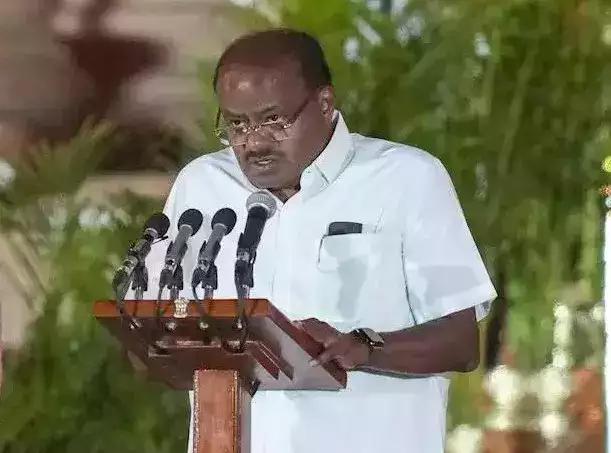
He assumes charge of the two ministries at a time when India’s manufacturing prowess could do with a large dose of policy support, as geopolitical shifts on the global stage have compelled large manufacturers to look away from China, towards India and other countries such as Vietnam, Indonesia and Malaysia.
While some marquee names such as Foxconn, Apple and Micron have already been enticed by the Indian policy makers through unheard of concessions, electric vehicle maker Tesla is still sitting on the fence. This is where Kumaraswamy underlining Indian manufacturing could become crucial. Tesla’s Elon Musk has, in the past few months, blown hot and cold over setting up gigafactories in India, despite the previous government rolling out the red carpet in the form of a new E-Vehicle policy just a day before the model code of conduct kicked in due to Lok Sabha elections in March this year.
In the hurriedly announced policy, import duty on electric vehicles with CIF value of $35000 or more were allowed at a duty rate of just 15%. This, when fully built cars attract 100% import duty if their CIF value is over $40,000 and 70% for cheaper vehicles. The 15% duty threshold is exactly what Tesla had sought for initial years, while also promising to invest in setting up a manufacturing plant in India.
Attracting global OEMs to make EVs in India is the need of the hour. A report by JLL titled ‘Beyond China, Asia’s Next Manufacturing Powerhouse’ has noted that India’s EV market is expected to grow at a CAGR of 8.1% between 2022 and 2027 and that the government has allotted $31 billion in investments under the production linked incentive (PLI) schemes for 15 sectors. The Foreign Direct Investment in the electric vehicle sector was about $1.9 billion in FY23, just 4.1% of the total FDI inflows that year.
Not only getting global manufacturers to loosen their purse strings in India, Kumaraswamy will also have to boost overall domestic manufacturing of automobiles, components and batteries through policy support to these sectors in the form of production linked incentives and/or subsidies. The ministry of heavy industries also helms the Electric Mobility Promotion Scheme 2024, which is being seen as an extension of the earlier Faster Adoption and Manufacturing of Electric Vehicles (FAME) II, which lapsed on March 31. This scheme offers incentives in the form of purchase subsidies for various types of electric vehicles, subject to the amount of localisation the manufacturers of these vehicles have achieved and also based on some vehicle parameters.
And just like the E-Vehicle policy implementation will involve deft negotiations with domestic manufacturers while persuading Tesla and others to come in, there is a fair amount of work needed to finetune the EMPS - which ends in July - while taking a call on whether to launch the third edition of FAME. EV makers, in unison, have been clamouring for continued subsidies to increase EV penetration and bridge the price gap between electric and ICE vehicles. This scheme has seen multiple headwinds, from OEMs as well as from the government, with allegations of misappropriation of subsidies and fraud.
Besides the automobile sector, the heavy industries ministry also administers central public sector enterprises. As for the new minister’s steel portfolio, one of the biggest issues being faced by domestic manufacturers is dumping from China and rising raw material prices. Again, emphasis and support of local manufacturing is the need of the hour here too.
Right after being appointed, Kumaraswamy held a meeting with senior heavy industries ministry officials on Monday evening, during which he again emphasised the goal of increasing industrial production and creating more jobs across the country. The ministry is expected to prepare a detailed blueprint for this within a fortnight.
Disclaimer: The copyright of this article belongs to the original author. Reposting this article is solely for the purpose of information dissemination and does not constitute any investment advice. If there is any infringement, please contact us immediately. We will make corrections or deletions as necessary. Thank you.





